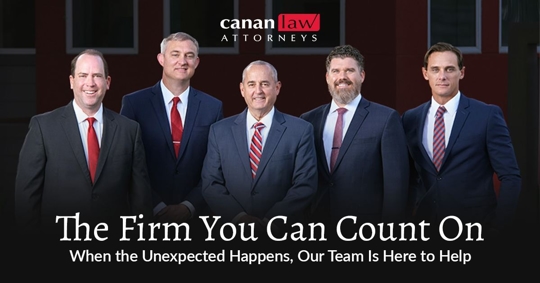Hanrahan v. Hometown America, LLC-Fourth District Court of Appeals
This story brought to you by Canan Law, the most respected team of attorneys in St. Augustine.
ferae naturae-It’s a common law doctrine dating back to the Roman Empire, but Florida courts still refer to it when determining liability in injury or death cases involving wild animals.
When Mr. Hanrahan sustained fatal injuries from fire ants while walking his dog in a common area of the Pinelake Gardens and Estates mobile home park where he and his wife lived, the question was subsequently raised as to whether the property owners or management were responsible for the tragedy.
Although the community management was aware of the presence of fire ants on the property, and even had knowledge of instances in which maintenance employees had been bitten by the ants, an exterminator confirmed in court that fire ants are wild animals in Florida and exterminating them from a property would be “an impossibility.”
The trial court granted summary judgment in favor of Hometown America, LLC after determining that, according to Florida law, the property owners and management had no way to foresee the attack on Mr. Hanrahan by fire ants.
Upon appeal, the Fourth District Court of Appeals referenced case law in the process of issuing the judgment. The court referenced Wamser v. City of St. Petersburg (Fla. 2d DCA 1976) in which Wamser was attacked by a shark in waters adjacent to a St. Petersburg city beach. Wamser filed an affidavit from a Marine Patrol captain who reported shark activity in close proximity to the beach, but the court ruled that the City had no reasonable ability to foresee an impending attack-the unpredictable behavior of wild animals being, by its very nature, unpredictable.
Hometown America, LLC did not introduce the ants to the property, nor did they harbor or incite the behavior which resulted in the attack on Mr. Hanrahan. Therefore, the Fourth District Court of Appeals agreed with the trial court’s decision and upheld the summary judgment in favor of Hometown America, LLC.
Because wild animals, ferae naturae, are considered the property of no person specifically, they have presumed the property of the general public. Therefore, their infliction of injury or death on an individual is not tied to a specific property owner when the owner has no reasonable ability to foresee an impending danger.
Common law can be difficult to understand, and that’s why it’s important to have an experienced attorney on your side in a case like this. The attorneys at Canan Law in St. Augustine, Florida will be happy to answer your legal questions any time of day or night.
Canan Law, the most respected team of attorneys in St. Augustine, keeps you informed with blog posts discussing legal terms and Florida court cases that matter to you. Ask your legal question today with our website’s live chat feature, or call (904) 849-2266.



